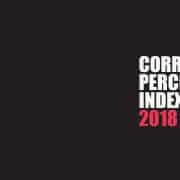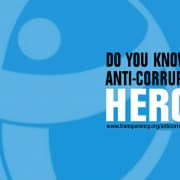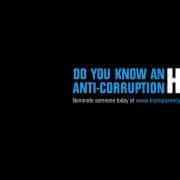|
Getting your Trinity Audio player ready...
|
Transparency International (TI) today released the latest version of its Transparency in Corporate Reporting (TRAC) series of reports, this one focusing on Assessing Emerging Market Multinationals. The report assessed 100 of the fastest-growing companies based in 15 emerging market countries and operating in 185 countries around the world in terms of their public disclosure practices. South Africa’s MTN, Bidvest, Sappi and Sasol were included.
The survey was divided into three dimensions: the reporting of key elements of their anti-corruption programmes; the disclosure of their company structures and holdings; and the disclosure of key financial information on a country-by country basis. This information was gathered from corporate websites and other publicly available sources by a research team from TI.
The results were disappointing – the global average for these 100 companies was just 3.4 out of 10, where 0 is the least transparent and 10 is the most transparent. TI noted that the average was 0.2 points lower than that of the previous survey, conducted in 2013. In comparison with the 124 established multinational companies assessed in a separate TRAC survey in 2014, however, this result falls short by just 0.4 points.
The big multinationals fared better than the emerging markets companies in the area of anti-corruption programmes, but the opposite applied when it came to organisational transparency and country-by-country reporting. This was mainly attributable to the strong performance of Indian companies which are subject to legal requirements that compels them to disclose all their subsidiaries and related key financial information.
Levels of transparency decreasing in emerging markets
The report showed a worrying trend:
- 75% of companies scored less than 5 out of 10 in transparency tests.
- Only one company – Fallabella from Chile – scored 50% or more in all dimensions.
- Only two companies – India’s Bharti Airtel and Malaysia’s Petronas – scored full points in any of the three dimensions.
- Chinese companies scored 1.6 out of 10, on average.
- 72% of companies did not disclose information about tax payments in foreign countries.
- 81 out of 100 companies did not disclose an explicit policy prohibiting facilitation payments.
- 41 companies did not disclose the existence of whistleblowing channels for employees.
Instead of emerging market companies working towards becoming more transparent, said TI, the opposite is happening, and these companies urgently need to take decisive action to stop corruption from thriving.
TI chairperson José Ugaz said: “Pathetic levels of transparency in big emerging market companies raises the question of just how much the private sector cares about stopping corruption, stopping poverty where they do business and reducing inequality.”
He criticised the lack of action in establishing adequate transparency and anti-corruption measures and will from the top, saying that companies must do more than just talk about fighting corruption – they must act to show that their words have substance.
Brics companies fail to impress
The 75 companies from South Africa and its Brics comrades put up a poor show, failing to beat the average score. Underperforming Chinese companies dragged the whole group down and of these, only one – ZTE – made it into the top 25 companies overall. Considering that these mighty corporate entities produce about 30% of global GDP, said TI, they have a clear obligation to help raise standards of integrity in their business dealings, and play their role in fighting corruption
The 19 Indian companies shone in this sorry group, especially in terms of regulatory matters, where all of them scored 75% or more. This is the highest average score of any country in organisational transparency, largely due to the Companies Act. Bharti Airtel achieved the best results overall. This could be attributed to several factors, said TI – the company’s stated commitment to conducting business ethically; its domestic legal and regulatory environment which leads to very strong disclosure practices when it comes to the companies’ organisational structure, and its openness on key financial information in all countries where it does business.
Of South Africa’s companies, MTN managed the best score (5.9), followed by Sasol (4.1), Bidvest (3.7) and Sasol (3.0). To put this in perspective, Bharti Airtel scored 7.3 overall.
But the Indian achievers were the exception, rather than the rule. Most companies failed to convey any message to their staff, partners, customers and other stakeholders that corruption has no place in their operations.
“Customers should demand the companies they patronise live up to the highest anti-corruption standards or risk losing their business,” said Ugaz.
• Image from Media Club South Africa








